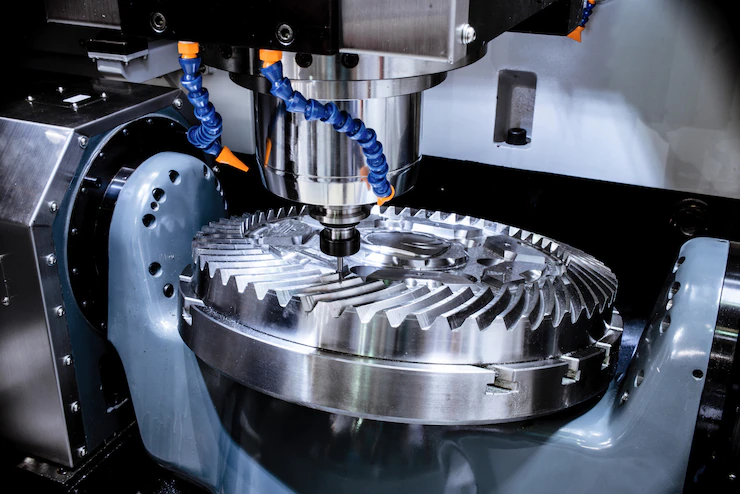
CNC precision machining is a process of creating parts with very tight tolerances. This process is usually used for small parts, but there is a growing demand for machining large parts with precision. The fabrication of large CNC parts is a challenging process that requires both expertise and experience. Many factors must be considered when machining large parts, such as the effects of thermal expansion, the use of supports and fixtures, and the need for specialized tooling. Additionally, the large size of the parts can make them difficult to handle and move around during the machining process of large parts. Would you like to know more about the challenges involved in machining large CNC parts? Read the post to know more.
Major Challenges Involved in CNC Machining Large Parts Explained
While CNC machining can be accurate, some challenges may arise when machining large CNC parts. The following are a few of the many challenges that can occur during the process of machining large parts with precision.
- Meeting Tight Tolerances: The next biggest challenge is ensuring that the tolerances are met. Tolerances are the allowable deviation from the desired dimension of a part. When machining large parts, there are chances that the tolerance level can get deviated from the range specified by the customer.
- Avoiding Defects in Large CNC Machined Parts: Avoiding defects is one of the major considerations, yet one of the most challenging aspects of large part CNC machining. Defects can occur due to several factors such as incorrect tooling, poor programming, or wrong machine setup. To avoid such defects, it is highly recommended to use the correct tooling and properly follow the correct machining procedures.
- Controlling Vibration in Large Part Machining: Another challenge is avoiding unnecessary vibration during the machining process of large parts. When creating large CNC parts, it’s essential to secure the machine properly to avoid vibrations that may compromise quality.
- Increased Complexity in Machining Large Parts: The increased level of complexity is yet another major challenge involved in large CNC parts machining. When machining large parts, there are a lot more variables to consider. This can make the process more difficult to control and can lead to more mistakes.
- Ensuring Accurate Tool Paths for Large Parts Machining: Ensuring the right tool path throughout the machining process is quite important. This is because incorrect tool path can cause the part to be machined incorrectly.
- Programming Complexity in CNC Machining Large Parts: Programming the machine to align precisely with the work required is another challenge in machining large parts. This process is complex and relies on the right software tools and programming expertise.
- Managing Wear and Tear in Large CNC Parts Machining: Due to their size and required force, machining large CNC parts places an increased level of wear and tear on the equipment, which can lead to more frequent breakages and additional costs.
- Avoiding Tool Deflection in Large Part CNC Machining: Ensuring that the cutting tool does not deflect during the machining process is another challenge involved in the process. Tool deflection can cause havoc on the final dimensions of the workpiece.
- Using High-Pressure Coolant Systems in Large Parts Machining: In many cases, machining large parts requires high-pressure coolant systems to manage heat and wear. However, these systems require maintenance and increase operational costs.
Additional Challenges Unique to Machining Large Parts
The larger the CNC part, the greater the challenges. Here are some considerations:
- Special Fixtures or Setups for Large Parts: Large CNC parts often need custom fixtures, which can be costly and time-consuming to create.
- Multiple Machining Steps for Large Parts: Large parts frequently require additional machining steps, which can extend lead time.
- Handling and Transporting Large Parts: Due to their size and weight, machining large CNC parts adds challenges in terms of handling, transport, and overall project cost.
Considering these challenges, choosing the right provider for machining large parts is essential. Here are some key questions to keep in mind:
- What is the provider’s capacity and capability in machining large CNC parts?
- What quality control procedures are in place for machining large parts?
- Is the provider experienced and financially stable?
Asking these questions will help you narrow down your choices and select the best precision machining service provider for your project.
As the demand for precision machining large parts grows in both plastics and metal industries, it’s essential to partner with a qualified machining service provider. Princeton Industrial Products, Inc. is a trusted ISO 9001:2015 CNC machine shop specializing in machining large parts. Their experience ensures challenges are resolved quickly, and projects are completed efficiently to the highest standards.
